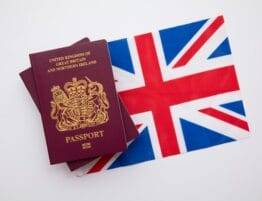
A recent High Court decision has thrown doubt on the immigration status of children born to EU Citizens exercising their free movement rights in the UK before Brexit. In R (on the application of Roehrig) v Secretary of State for the Home Department [2023] EWHC 31 (Admin), the Claimant, C, was born in the UK on 20 October 2000 to a French national mother, M, who was, at the time of C’s birth, working in the UK as an EU Citizen entitled to freedom of movement within the EU. C believed that as he had been born in Britain, under the British Nationality Act (BNA) 1981, section 1(1)(b), he automatically acquired British Citizenship. However, the Home Office refused to grant him citizenship.
Section 1(1)(b) of the BNA 1981 states that a person born in the UK shall be a British Citizen if at the time of birth one or both of their parents were settled in the United Kingdom. Section 50(2) of the BNA 1981 provides that a person is settled if they are “ordinarily resident in the United Kingdom …without being subject under the immigration laws to any restriction on the period for which he may remain.” An example of a settled person under this definition would be someone with Indefinite Leave to Remain (ILR).
‘Immigration laws’ are defined in s.50(1) of the BNA 1981 as “the Immigration Act 1971 and any law for purposes similar to that Act which is for the time being or has at any time been in force in any part of the United Kingdom”.
Where EU Citizens ‘settled’ in the UK in October 2000?
On 1 January 1983, a child born in the UK would only be a British Citizen if at least one of their parents was a British Citizen or was settled at the time of the child’s birth. Between 2006 and 2020, while the Citizens Directive was in force, an EU citizen living and working in an EU country for five years automatically acquired permanent settlements. However, in 2000, the only option for M to acquire Settlement was to apply for ILR and she never took this step.
There exists, therefore, a ‘no-man’s land’ between 2000 and 2006 with the question being, was C a British Citizen given the status of British Nationality law at the date of his birth?
The Parties’ Arguments To The Court
C argued that M’s rights derived from EU Treaties, as given effect by s.2 of the European Communities Act 1972 (“the ECA 1972”). M’s residence was not subject to any restrictions under the immigration laws as defined in the BNA 1981, because her right to live and work in the country was governed by EU law. This had been the interpretation made by President of the Upper Tribunal McCloskey J in Secretary of State for the Home Department v Capparelli [2017] UKUT 00162 (IAC).
C also stated that from 1 January 1983 through to 2 October 2000, the Secretary of State understood the law to mean that those born in the UK to persons exercising EU free movement rights automatically acquired British Citizenship. However, this changed on 2 October 2000. From that date onwards, the Home Office took the view that an EU citizen had to have applied for and been granted ILR to be considered settled. And from 2006, the Home Office said that one parent had to have acquired permanent residence to be deemed settled.
The Home Office explained to the Court that M was subject to a restriction on the period for which she could remain under the immigration laws whilst she was exercising her free movement rights. Therefore, C had not automatically acquired British Citizenship at the time of his birth.
The High Court’s Decision
The Honourable Mr Justice Eyre dismissed C’s claim on the grounds that M was not settled per the provisions of the BNA 1981 at the time. He ruled that the case of Capparelli was either distinguishable or wrongly decided.
What does this decision mean for people born to EU Citizens living in the UK between 2000 and 2006?
This decision is extremely concerning for people born in the UK who believed they are British Citizens because one or both of their parents derived their right to live in the UK from EU free movement.
There is little doubt an appeal will be brought concerning this decision as there are significant immigration law issues that must be clarified by the Court of Appeal. We will keep you informed as to ongoing developments. In the meantime, if you have any concerns about your citizenship status, please do not hesitate to contact us.
Garth Coates is a leading niche immigration firm based in the heart of London, specialising in all forms of personal and business immigration, including visas, global mobility, sponsorship and compliance, settlement, and citizenship. To discuss how best to challenge a visa refusal based on your circumstances, please contact one of our friendly and approachable immigration Solicitors on Tel: +44 (0)20 7799 1600 or by completing our online contact form.









